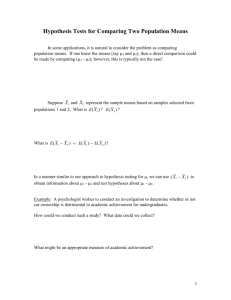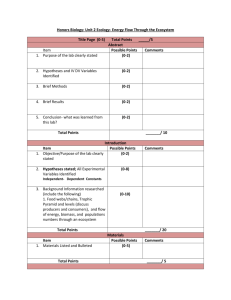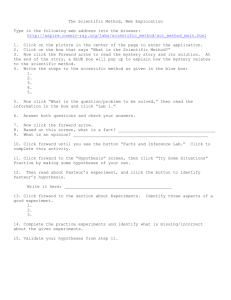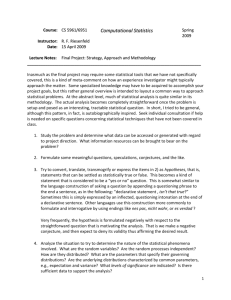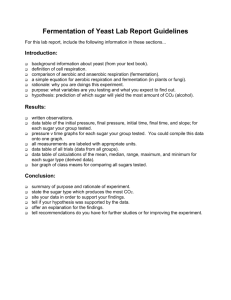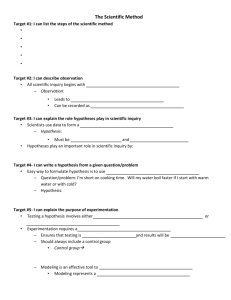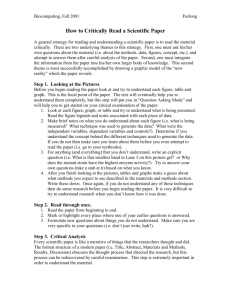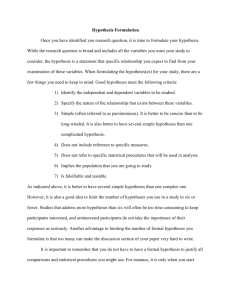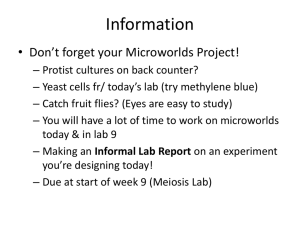Hypothesis Information
advertisement
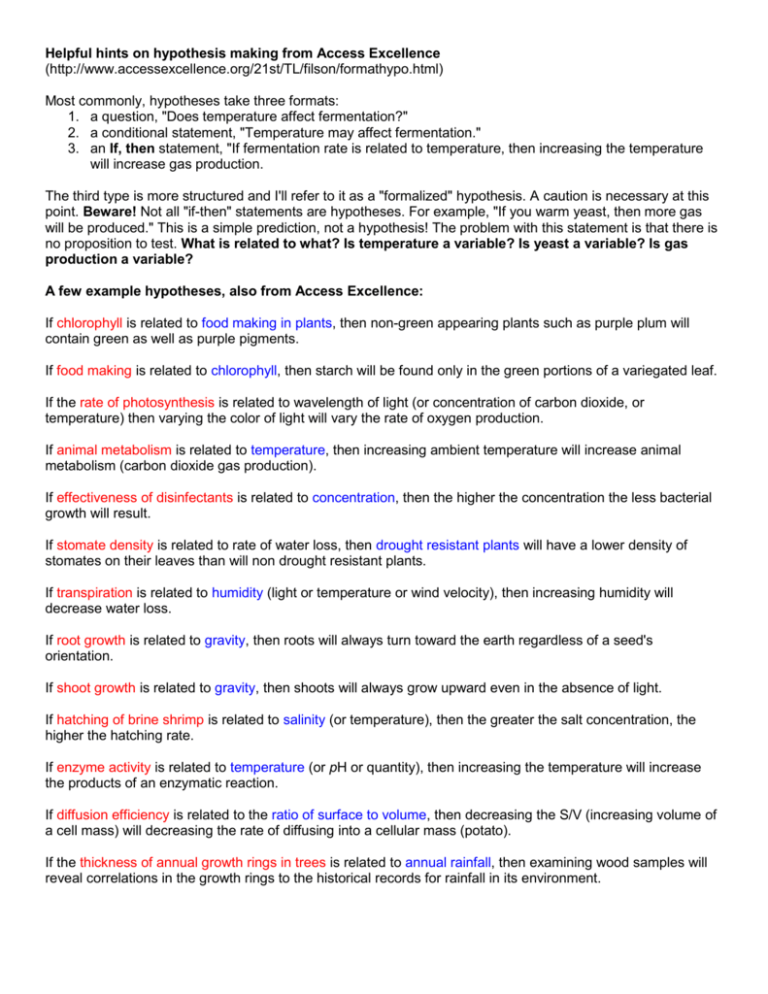
Helpful hints on hypothesis making from Access Excellence (http://www.accessexcellence.org/21st/TL/filson/formathypo.html) Most commonly, hypotheses take three formats: 1. a question, "Does temperature affect fermentation?" 2. a conditional statement, "Temperature may affect fermentation." 3. an If, then statement, "If fermentation rate is related to temperature, then increasing the temperature will increase gas production. The third type is more structured and I'll refer to it as a "formalized" hypothesis. A caution is necessary at this point. Beware! Not all "if-then" statements are hypotheses. For example, "If you warm yeast, then more gas will be produced." This is a simple prediction, not a hypothesis! The problem with this statement is that there is no proposition to test. What is related to what? Is temperature a variable? Is yeast a variable? Is gas production a variable? A few example hypotheses, also from Access Excellence: If chlorophyll is related to food making in plants, then non-green appearing plants such as purple plum will contain green as well as purple pigments. If food making is related to chlorophyll, then starch will be found only in the green portions of a variegated leaf. If the rate of photosynthesis is related to wavelength of light (or concentration of carbon dioxide, or temperature) then varying the color of light will vary the rate of oxygen production. If animal metabolism is related to temperature, then increasing ambient temperature will increase animal metabolism (carbon dioxide gas production). If effectiveness of disinfectants is related to concentration, then the higher the concentration the less bacterial growth will result. If stomate density is related to rate of water loss, then drought resistant plants will have a lower density of stomates on their leaves than will non drought resistant plants. If transpiration is related to humidity (light or temperature or wind velocity), then increasing humidity will decrease water loss. If root growth is related to gravity, then roots will always turn toward the earth regardless of a seed's orientation. If shoot growth is related to gravity, then shoots will always grow upward even in the absence of light. If hatching of brine shrimp is related to salinity (or temperature), then the greater the salt concentration, the higher the hatching rate. If enzyme activity is related to temperature (or pH or quantity), then increasing the temperature will increase the products of an enzymatic reaction. If diffusion efficiency is related to the ratio of surface to volume, then decreasing the S/V (increasing volume of a cell mass) will decreasing the rate of diffusing into a cellular mass (potato). If the thickness of annual growth rings in trees is related to annual rainfall, then examining wood samples will reveal correlations in the growth rings to the historical records for rainfall in its environment.

